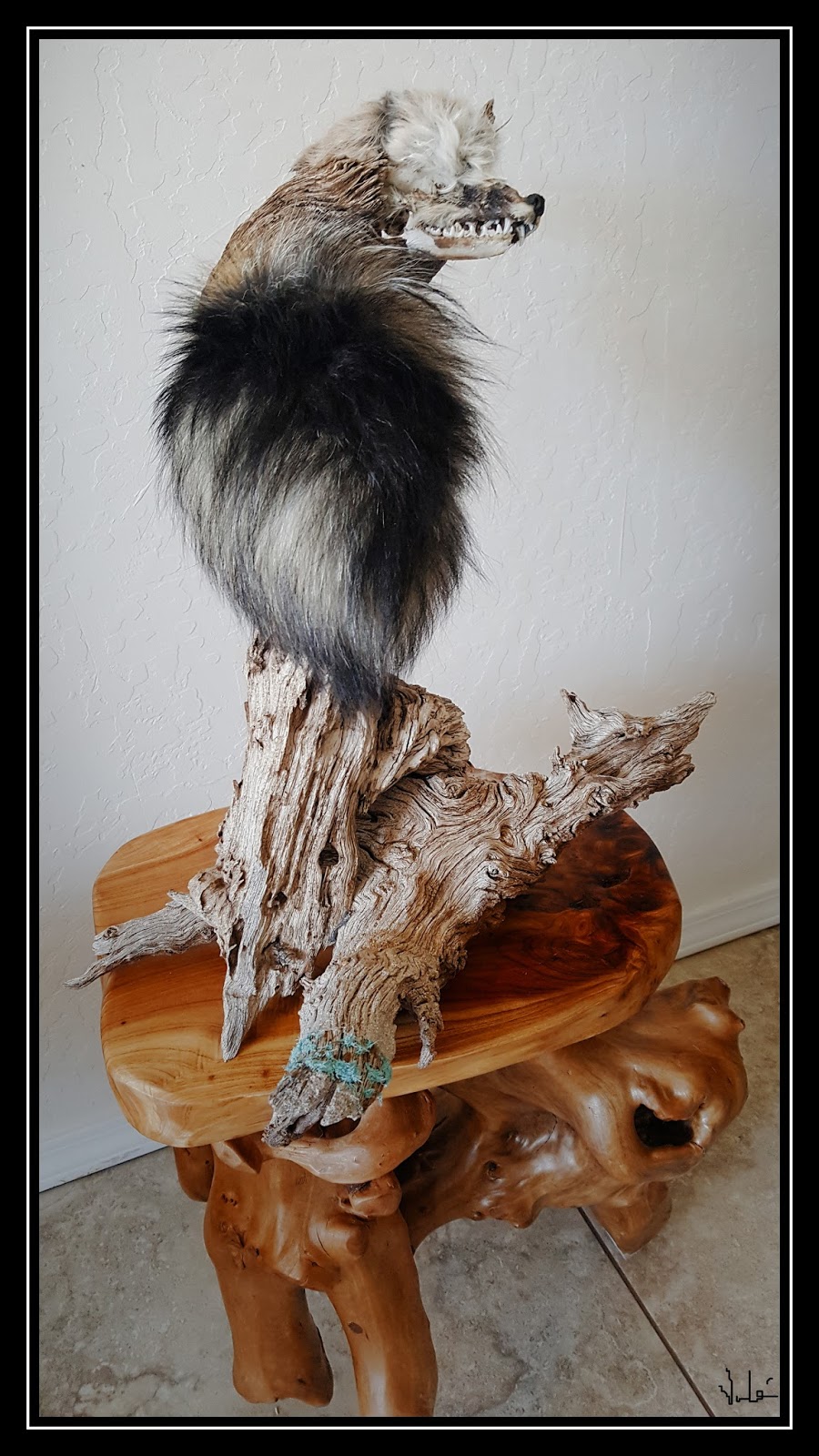To Paint a Story that is Already on the Canvas
I received a number of emails, from Russia to Bangladesh,
asking how I decide what to paint on a certain hide. As a poet, I start with a
clean page (yes, I still write longhand….) and let it happen.
But when painting on hide that I prepare without
tanning, I cannot start with a “clean page”. The hide has its own shades,
colours, bumps, vein lines, etc. So, to answer to my viewers who asked the question,
my short answer is: I spend time looking at each hide trying to “hear” what
story it is willing to tell.
Realizing that such an answer is too vague, I
decided to show, step-by-step, how I proceeded with my last painting.
Initial
impressions
This is a 20 x 22 inch hare hide. As always I do not
cut and shape it to look like a rectangle or a square. I leave the shapes as
they are and work around and with them.
This hide had a lot of colour and lines. After
looking at it from different positions, I found that it was a wildlife scene
where a large bird (eagle?) was chasing an antelope toward another large predatory bird.
You think I am making this up? Here is what I saw:
The eagle
The antelope
The other large bird
Next
Steps
Ok. Now I had to decide how to be minimalistic and tell this story without shading or hiding the natural shapes. So, the eagle came to life as such:
The antelope got a leg to show its run:
And the other bird became an almost mystical figure:
I had encroached upon the shapes of the hide
minimally. In many ways I became the interpreter of what was already there.
In fact, there was more there than I had originally noticed. Indeed, atop the eagle there was another bird, beautifully in flight that needed a few feathers to join the party! Here it is:
And here is the final product:
… So, there you have it. When working with organic
materials, I think the first step is to learn about the story it already hides
in itself. And the last step is to interfere as little as possible to not
change that story.
December 2, 2017
© Vahé A. Kazandjian, 2017











Comments
Post a Comment